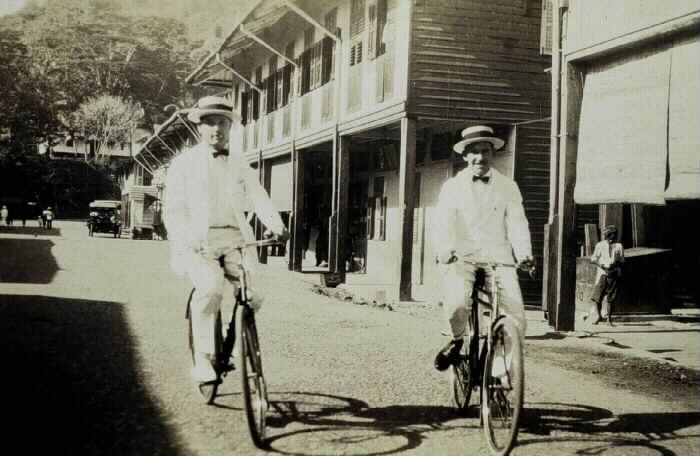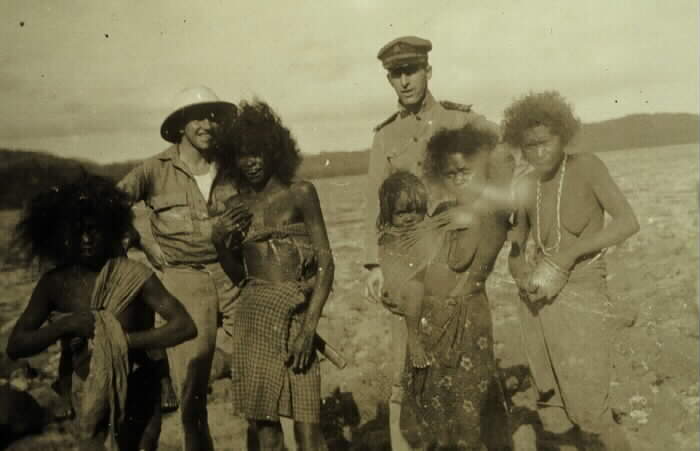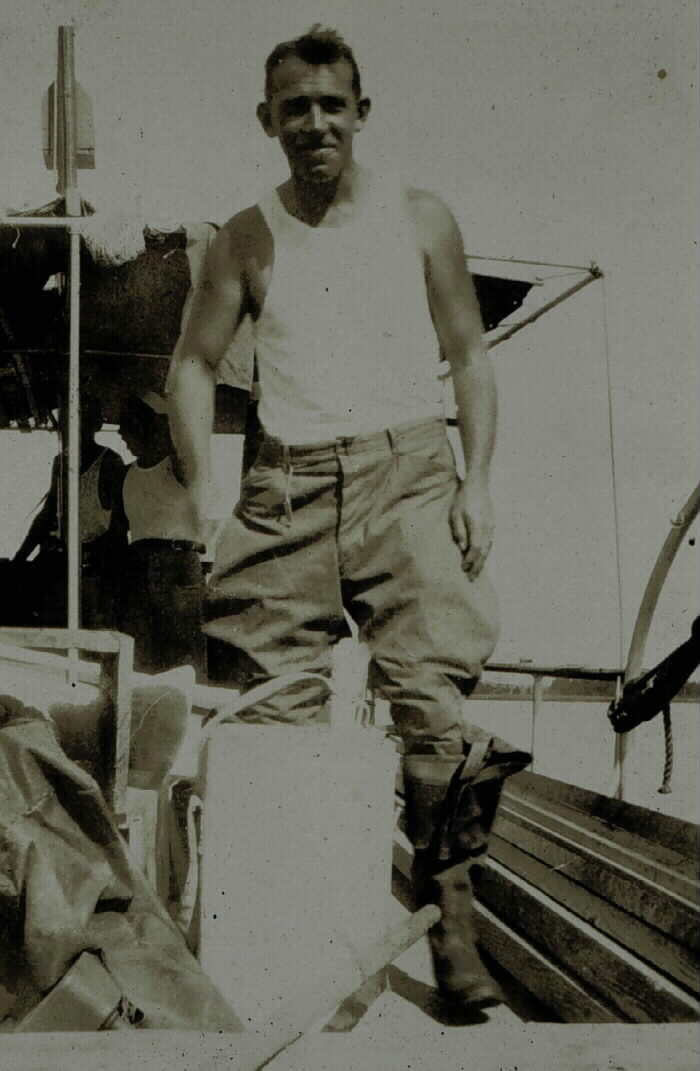Courtesy of his son: J.A. “Tony” Studds, Major General (Ret.), U.S. Marine Corps
Rear Admiral Robert Francis Anthony Studds, U.S. Coast & Geodetic Survey (USC&GS), was born on a farm near the Soldiers’ Home, in Washington, D.C. He attended parochial and public schools in the District before graduating from Catholic University in 1917, with a degree in civil engineering. Our Country being at war, he enlisted in the Army and served until the end of World War I in the Engineer Corps.
Following employment as an engineer with the District of Columbia, he accepted a commission in the USC&GS. Throughout a career spanning 35 years, Rear Admiral Studds commanded various survey vessels operating in the Atlantic Ocean, Caribbean Sea, Philippine Islands, and Alaska. During survey operations in the Aleutian Islands following the conclusion of World War II, many seamounts were discovered by USC&GS Ship Pathfinder, which he commanded. From May 1950 until August 1955, Rear Admiral Studds was the Director of the USC&GS.
In recognition of his superior achievements as a pioneer surveyor of waters belonging to the United States and of his distinctive leadership as an USC&GS Officer, the United States Board On Geographic Names designated an underwater steep volcanic cone, in the North Pacific Ocean, with two summit craters at 46N Latitude and 155 W Longitude, as Studds Seamount.
Courtesy of The Buzzard: 4 November 1943
Robert F. A. Studds, our Man-of-the-Month for November, was born in Washington D.C., December 17, 1896. He received his early education at local grammar and high schools, attended the Immaculate Conception School, and was graduated from Catholic University of America with a Bachelor of Science in Civil Engineering in 1917.
After graduating from Catholic University, he entered the Sanitary Division of the District Government, and remained in this position until our entry into World War I. He enlisted in the Army in the 472nd Engineer Regiment, and served at Camp Humphreys until 6 months after the war.
Commander (later Rear Admiral) Studds received his appointment to the Bureau in 1919 as a deck officer and junior engineer and was assigned to the NATOMA. In 1922-1923 he was with the LYDONIA off the coasts of Oregon and Florida. After an assignment on the PATHFINDER from 1923 to 1926 in the Philippines, he returned to the States in charge of the ELSIE III from 1926 to 1929, engaged in operations in New York Harbor and original surveys in South Carolina. This assignment was interrupted for a brief period in 1927 for duty on the RANGER in Puerto Rico.
Perhaps his most memorable experience came in 1936 when, as Commanding Officer of the FATHOMER, his ship was caught in a typhoon in Port San Vincente on the northeastern end of Luzon in the Philippines. The wind velocity reached an estimated 150 miles per hour and the FATHOMER dragged her anchor fetching up on a reef.
In his report on the “Stranding and Salvaging of the FATHOMER” (Field Engineers Bulletin 1936) Commander Studds gives a very vivid description of the typhoon.
Although modestly giving credit to his officers and crew, his ability to instill in his officers and men his own meticulous insistence on proper maintenance of ship and equipment were largely responsible for the final salvaging of the vessel.
After serving in several capacities in the Washington Office, he was made assistant chief of Charts in 1938, where he remained to this date. His present job consists of handling the very difficult personnel problems for Chart Division.
He not only knows by name the vast majority of employees of the Division, but their grade, date of last promotion, and number of children.
He is married to Margaret Lee Milan, and has three children, John Anthony, Sharon Lee, and Michael Bowman. Outside of his home life he is a sharecropper of some note and the family larder is well stocked with the results of his (or better put, Mrs. Studds’) efforts.
His chicken raising industry ran into difficulties when his son John became allergic to the birds. Now the Studds’ have been eating chickens instead of raising them. Commander Studds takes such an interest in his work here that he has decided that when he retires, he will go into the personnel business, which all goes to prove he can really take it.
Michael Robert Patterson was born in Arlington and is the son of a former officer of the US Army. So it was no wonder that sooner or later his interests drew him to American history and especially to American military history. Many of his articles can be found on renowned portals like the New York Times, Washingtonpost or Wikipedia.
Reviewed by: Michael Howard



